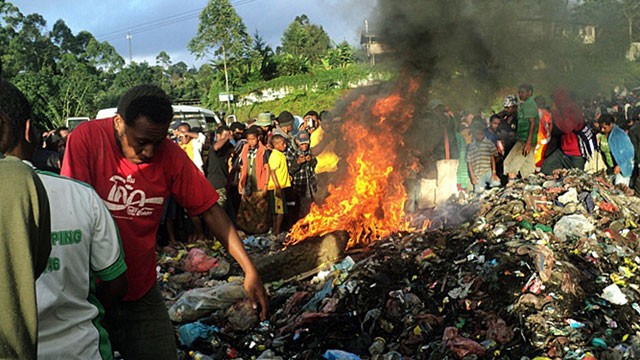By Ryan Aliman
Impunity Watch Reporter, Africa
ADDIS ABABA, Ethiopia – Despite a change in administration, Ethiopian officials have renewed criminal charges against the former editor-in-chief of the now-defunct newspaper, Feteh, for allegedly criticizing former Prime Minister Meles Zenawi.

A judge in the Federal High Court in Addis Ababa revived three charges against Temesghen Desalegn, the former editor-in-chief of Feteh. Desalegn faces charges of defaming the government, false publication of articles, and “outrages against the constitution”.
The original charges relate to various articles published in Feteh between July 2011 and March 2012 before former Prime Minister Zenawi passed away last August, 2012. State prosecutors alleged that the Feteh articles falsely accused the government of interfering in religious affairs and discrimination against certain ethnic groups, and incited violence.
The evidence against Desalegn cited Feteh articles discussing subjects including how Ethiopians should be angry about the Government’s repressive practices; the role of the youth as agents of change and in popular uprisings in Ethiopia and abroad; and the lessons that should be learned from the overthrow of Hosni Mubarak in Egypt.
In the charge, the government cited two articles discussing the peaceful struggles of youth movements for political change in Ethiopia in the wake of the Arab Spring.
In addition, the government made reference to two columns criticizing the killing and imprisonment of student protesters; the massacres of ethnic minorities by government forces; and the ethnic federalism system introduced by the Meles Administration.
Desalegn was arrested on August 1, 2012, a few days after Ethiopian authorities closed the weekly newspaper and blocked the distribution of around 30,000 printed copies that contained conflicting reports on the health of the late prime minister.
With the same month, state prosecutors suspended the original charges against Desalegn without explanation. However, with the revival of the charges, Desalegn is currently facing the same charges he was facing last year.
The next court date is scheduled for March 26, according to local journalists.
Shimeles Kemal, a government spokesman, said that the charges had been renewed based on further incriminating evidence. Kemal offered no additional details.
Ethiopia, a close ally of the United States, has been repeatedly criticized by international human rights groups for legislating broad anti-terrorism legislation to punish critical journalists and opposition groups.
The Ethiopian government has denied all allegations that it is targeting journalists because of their reporting or affiliations with political groups.
However, with seven journalists currently behind bars and 79 that have fled the country, Ethiopia is the second-leading jailer of journalists in Africa after neighboring Eritrea, which has jailed at least 30 journalists, according to the Committee to Protect Journalists.
For further information, please see:
Sudan Tribune – CPJ Denounces Politicized Trial of Ethiopian Journalist – 10 February 2013
Committee to Protect Journalists – Charges Renewed Against Ethiopian Journalist Temesghen – 8 February 2013
Amnesty International – Ethiopia: Detention of Editor Signals Continuation of Meles-era Crackdown – 24 August 2012
All Africa – Ethiopia: In Ethiopia, Feteh Editor Jailed During Trial – 23 August 2012


